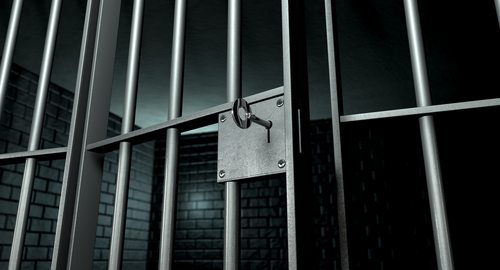
January 29, 2015; Augusta Chronicle (Augusta, GA)
On Friday, the American Civil Liberties Union (ACLU) filed a federal lawsuit against DeKalb County, Georgia, and a debt collection business called Judicial Correction Services, Inc. (JCS) on behalf of Kevin Thompson. Thompson was jailed for 5 days for failure to pay court fines and probation company fees stemming from a traffic ticket. The ACLU charges that the court and JCS have engaged in a coercive debt collection scheme that sacrifices the rights of poor people for local revenue generation. As readers will remember, the issue of onerous fees imposed by the courts against the poor surfaced as an element of the Ferguson protests.
The Brennan Center for Justice has published a full report on these types of debt collection practices entitled “Criminal Justice Debt: A Barrier to Reentry.” Missouri is one of the states covered in this report. Here are some of the findings:
Sign up for our free newsletters
Subscribe to NPQ's newsletters to have our top stories delivered directly to your inbox.
By signing up, you agree to our privacy policy and terms of use, and to receive messages from NPQ and our partners.
- Inability to pay leads to more fees and an endless cycle of debt. Fourteen of the fifteen states also utilize “poverty penalties”—piling on additional late fees, payment plan fees, and interest when individuals are unable to pay their debts all at once, often enriching private debt collectors in the process. Some of the collection fees are exorbitant and exceed ordinary standards of fairness. For example, Alabama charges a 30 percent collection fee, while Florida permits private debt collectors to tack on a 40 percent surcharge to underlying debt.
- Although “debtors’ prison” is illegal in all states, re-incarcerating individuals for failure to pay debt is, in fact, common in some—and in all states, new paths back to prison are emerging for those who owe criminal justice debt. All fifteen of the states examined in this report have jurisdictions that arrest people for failing to pay debt or appear at debt-related hearings. Many states also use the threats of revocation of probation or parole or incarceration for contempt as a debt-collection tool. In some jurisdictions, individuals may “choose” to go to jail as a way to reduce their debt burdens. Some of these practices violate the Constitution or state law. All of them undercut former offenders’ efforts to reintegrate into their communities. Yet even though over-incarceration harms individuals and communities and pushes state budgets to the brink, states continue to send people back to prison or jail for debt-related reasons.
- As states increasingly structure their budgets around fee revenue, they look only at one side of the ledger. Strikingly, there is scant information about what aggressive collection efforts cost the state. Debt collection involves myriad non-tabulated expenses, including salaried time from court staff, correctional authorities, and state and local government employees. Arresting and incarcerating people for debt-related reasons is particularly costly, especially for sheriffs’ offices, local jails, and for the courts themselves. For example, Brennan Center analysis of one North Carolina county’s collection efforts found that in 2009, the government arrested 564 individuals and jailed 246 of them for failing to pay debt and update their address information, but the amount it ultimately collected from this group was less than what it spent on their incarceration.
Thompson’s debt to the county and JCS was $838. He was given no indigency hearing and offered no counsel, as is required since the U.S. Supreme Court ruled more than 30 years ago that locking people up merely because they cannot afford to pay court fines is contrary to American values of fairness and equality embedded in the 14th Amendment to the U.S. Constitution. “Thompson suffered humiliation, anxiety, stress, emotional distress, and other irreparable injury from being handcuffed and taken to jail in front of his mother, forcibly separated from his mother and family, and detained for five days in unsanitary and cold jail conditions without enough food to eat,” the lawsuit says.
“Being poor is not a crime. Yet across the county, the freedom of too many people unfairly rests on their ability to pay traffic fines and fees they cannot afford,” said Nusrat Choudhury, an attorney with the ACLU’s Racial Justice Program. “We seek to dismantle this two-tiered system of justice that punishes the poorest among us, disproportionately people of color, more harshly than those with means.”
According to this statement, “blacks make up 54 percent of the DeKalb County population, nearly all probationers jailed by the DeKalb County Recorders Court for failure to pay are black—a pattern replicated by other Georgia courts.”
“In a country where the racial wealth gap remains stark, the link between driving while black and jailed for being poor has a devastating impact on communities of color,” said Choudhury.—Ruth McCambridge












